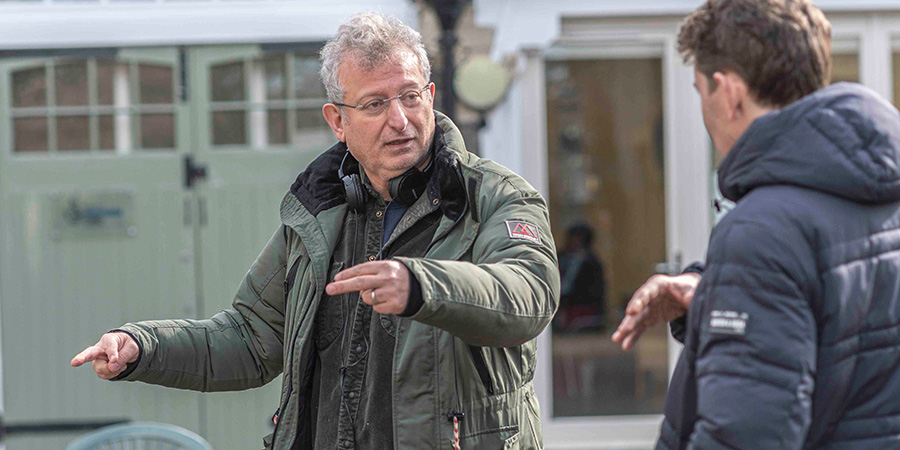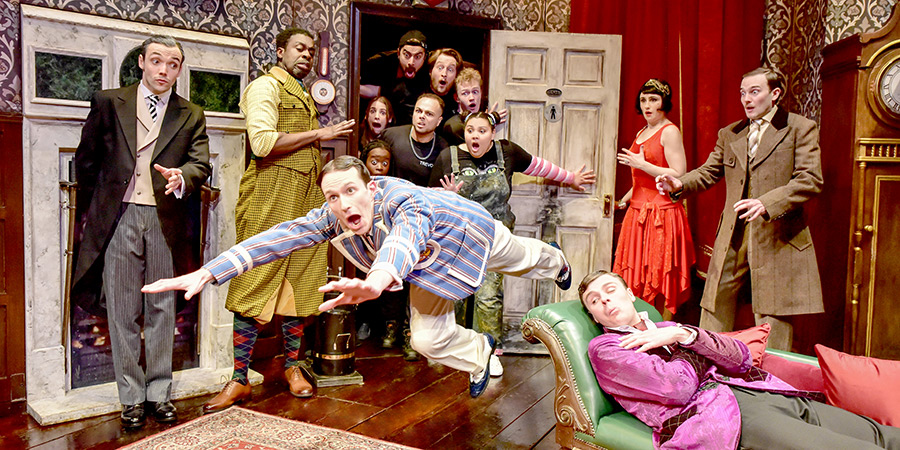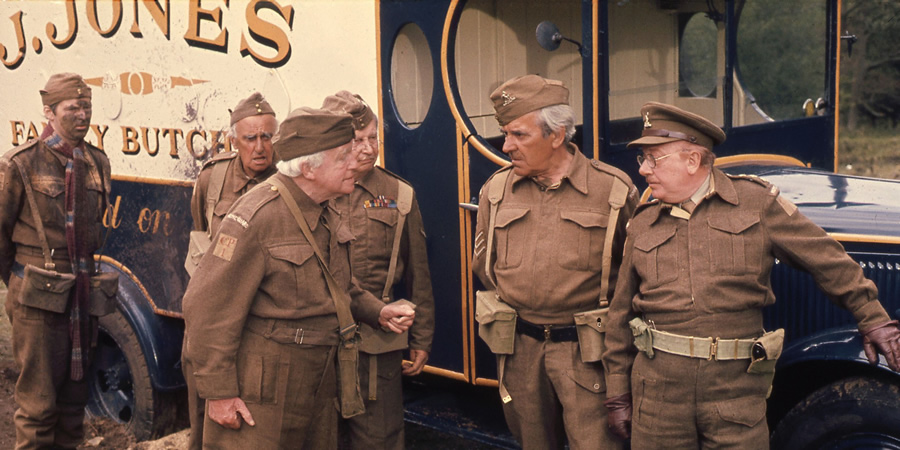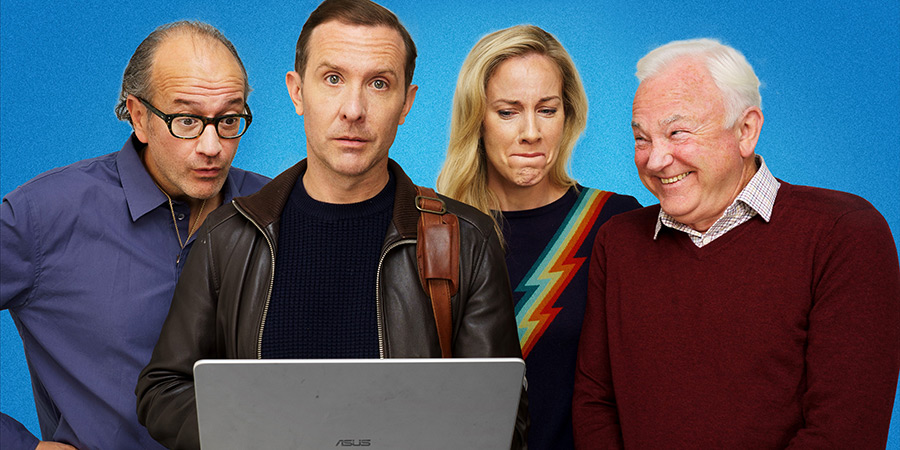A call to arms: comedy on television

Ofcom's latest report chastises the BBC - for the sixth year in a row - for not achieving sufficient hours of new comedy. It also states that working class audiences feel that they are not being well-served by our national broadcaster.
Let's imagine you work in comedy commissioning at the BBC. What's your reaction? We need more comedy! Urgently, you look at scheduling. Where are the new programmes going to go? BBC One, Two or Three? Then you look at budgets. How much money have we got to make the more shows that Ofcom is asking for? Then you look at the working-class element. Mmmm. When the BBC was accused of not being diverse enough, we went on the hunt for BAME writers or front of camera talent. So let's put word out to agents - we're on the hunt for working class writers, working class actors. Authentic voices.
That reaction couldn't be more wrong.
It's a fundamental flaw in our thinking that we laugh based on our class, or our sex or our religion. We laugh because things are funny. Show The Two Ronnies' Four Candles sketch to any child over 10. So long as they speak decent English, they get the gags. Show Fawlty Towers to a child of that age. Or City Lights. Humour crosses boundaries. Uniquely among the arts, it has the ability to have billionaires and the homeless involuntarily exercising the same set of facial muscles.
Has anyone seen The Play That Goes Wrong and thought it wasn't funny?

The idea that a class of society can be pigeon-holed when it comes to comedy is one of the worst shortcomings not just of our broadcasters but of our society. If all the funny people are working class, those are the ones we want. If by some perverse miracle they are all the children of Philip Green, hire them.
I have seen pigeon-holing approach in action. When I made Leon The Pig Farmer 30 years ago it was passed over by film execs for being too Jewish. They stood against it even after it was finished and won (non-Jewish!) awards. An executive at cinema Screen on the Hill exec in Hampstead said it wouldn't last there one afternoon. Weeks later, Leon broke the box office record at the Everyman - in Hampstead. More recently I have made two series of my sitcom Hapless - on Prime Video here and soon to be on Peacock in the US. This series too was passed on by so many in power in the UK. Is the fact that the central character is traditionally Jewish so limiting that the humour in Hapless can't be mainstream? In case that was indeed the thought process, we provided advance 5-star reviews we'd been given by influential critics who'd kindly had a look at final cut stage. The industry was unmoved. "We're aiming for a younger audience," we were told on more than one occasion.
How do you argue with someone in power who assumes young people only find young characters funny? It's the same with diversity. Want to make comedy that makes black people laugh? Well, make it funny and they will. We've pandered to a notion that humour should be aimed at a specific part of our audience. If we want Welsh people to laugh it has to be set in Wales. If we want Muslims to laugh, have Muslim writers. How absurd, how patently ridiculous. How racist.

As reported in Broadcast, the top 10 comedy programmes features Dad's Army and Last Of The Summer Wine week in, year out. Sometimes as high as number 5 and 6. Viewing figures for new comedies often plummet to the low hundreds of thousands. It must be frustrating in the extreme for the commissioners. It must be depressing reading. But their depression and frustration is not our problem. If Antiques Roadshow can get 4 million viewers - and it does - how brazenly are we failing? How fearful must be the atmosphere in the offices of ITV, the BBC and Channel 4? Comedy doesn't work! We can't get it to work!
Well you can and you must. If you have to start by grabbing that Antiques Roadshow audience, then do that and build out from that success. There's nothing wrong with that as a starting point. The Ofcom report says audiences are looking for something "edgier" than what they are given. They use the word edgier but what they actually mean is funnier. Laugh out loud funnier. Not wry smiles - for wry smiles don't beget water cooler conversation. If you want to grab a large audience, if that's your main intent, by all means have female characters who are menopausal, but if all the humour is based on menopausal gags, you'll lose men. Set a sitcom in Liverpool but if you have to actually be from Liverpool to get the humour that's not mainstream. Fighting this battle is what the best comedy writers do, if they are given space and time and money to live.
However we can't solely blame the commissioners, it's a deeper malaise. The people who appoint the commissioners are to blame, as are the people who appoint the people who appoint the commissioners. We are losing the ability to laugh together as a society. Comedy is more important than mere entertainment.
If you want to know why British society seems to be falling apart, with hatred and divisions on all sides, and the rise of antisemitism, islamophobia, homophobia, sexism and racism, look to your comedy viewing figures and panic. Take risks, says Ofcom. Easy for them to say. Their job isn't on the line. Established news programmes are losing half their journalists in cutbacks. And they want us to make risky comedy?? How?

Here's some answers. Slash the budgets for comedy. I don't mean take 2% off here and 3% there. I mean take the crew you have on TV comedy as if it's a period drama and rip it up. Merge crew roles, giving more responsibility to each hire. Ban crane shots. Use Just Eat for catering. Lose the circus. We shot two series of Hapless with a crew of under 10. We shot on top cameras, we didn't go into overtime, we shot an episode a week, we shot in multiple locations. We paid properly. Comedy is about the writing, the casting and the performances. Audiences don't admire the lighting in Friends or Peter Kay's Care Share.
If that sounds heartless, I apologise. But the overwhelming priority is mainstream comedy content. We could have a special BBC comedy production crewing agreement. Halve the crew, double the programmes. Cut back on programmes that are the same as other programmes with a twist. Cookery, cookery, something like cookery... Repeat. If we make comedy for the same price as reality TV, that would help. Stop putting out repeats of decades old series on the main channels. Stop deliberately trying to appeal to an international audience as well as a British one. Put an end to development hell. Greenlight quicker.
How about this? Acquire more finished British comedy in addition to commissioning more. Approach the problem from both sides.
You want a third side? The Government should extend its tax incentives to scripted comedy, irrespective of budget. There's a policy to make comedic writers and production companies salivate.
Even Ofcom needs to be challenged. If the broadcasters have to show a certain % of comedy that initiates from the regions or a certain % that is BAME or LGBTQ that doesn't help. It actively hinders comedy cropping up anywhere. Comedy is unique and it must be totally unfettered by regulations, whether they be Government-based or broadcaster-based.
If our comedy viewing figures don't climb up sharpish, it's not just broadcasters who should worry, it's all of us.
This article is provided for free as part of BCG Pro.
Subscribe now for exclusive features, insight, learning materials, opportunities and other tools for the British comedy industry.


